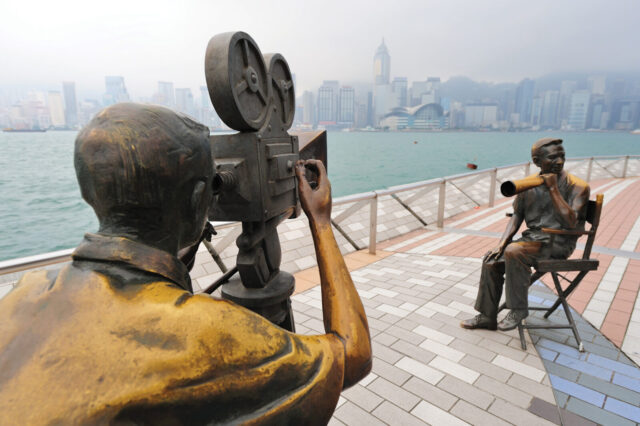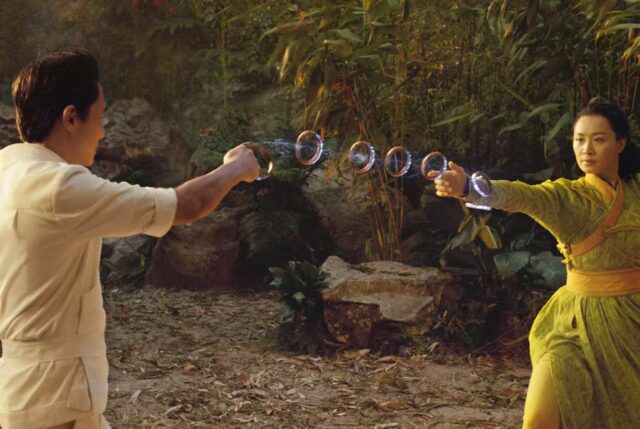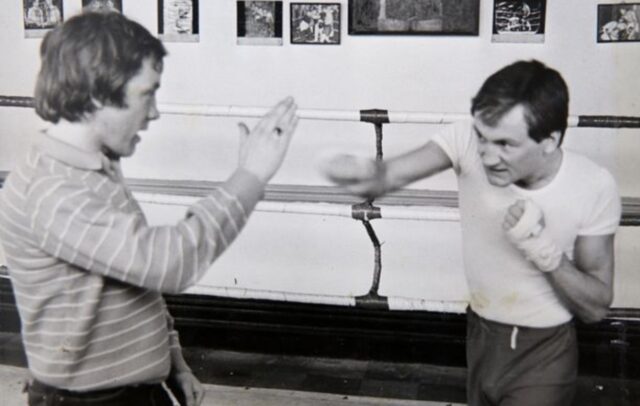
Hong Kong cinema is a treasure trove of cinematic wonders, showcasing a rich and diverse array of films that have captivated audiences around the world. From the exhilarating world of Kung Fu to gripping crime thrillers, it has left an indelible mark on the global film industry. This article delves into the fascinating journey of Hong Kong cinema, exploring its evolution, genres, iconic stars, cultural impact, and future prospects.

Evolution of Kung Fu Films
One cannot discuss China cinema without acknowledging the significant role played by Kung Fu films. These action-packed movies gained immense popularity in the 1970s and 1980s, elevating martial arts to an art form. Legendary actors such as Bruce Lee, Jackie Chan, and Jet Li became household names worldwide, thanks to their extraordinary martial arts skills and charismatic screen presence. From Lee’s groundbreaking “Enter the Dragon” to Chan’s acrobatic stunts in “Drunken Master,” Hong Kong films became synonymous with this film industry.
Iconic Kung Fu Stars and Their Impact
Bruce Lee, the trailblazer who brought Chinese martial arts to the forefront of global cinema, remains an icon to this day. His unparalleled charisma, physicality, and philosophy revolutionized the perception of martial arts in film. Jackie Chan, known for his unique blend of comedy and action, introduced a new style to the genre. He pushed the boundaries of stunt work and comedic timing, creating a distinctive brand of Kung Fu films. Jet Li’s intense performances and graceful fighting techniques further cemented the global appeal of Hong Kong’s martial arts cinema.

Beyond Martial Arts: Exploring Different Genres
While Kung Fu films dominated the scene, Hong Kong film industry showcased its versatility by venturing into various genres beyond martial arts. The city became synonymous with crime thrillers, producing gripping narratives filled with intrigue, suspense, and complex characters. Films like “Infernal Affairs” captivated audiences with their gripping stories of police corruption and double agents, inspiring the critically acclaimed Hollywood adaptation, “The Departed.”
Films like John Woo’s “A Better Tomorrow” and “Hard Boiled” combined stylish action sequences with emotional depth, redefining the crime thriller genre. Hong Kong directors skillfully balanced intense gunfights, intricate plot twists, and poignant storytelling, earning international acclaim and influencing filmmakers across the globe.
The Influence on International Filmmaking
Hong Kong cinema has exerted a profound influence on international filmmaking, particularly in the action and crime genres. Filmmakers like Quentin Tarantino openly expressed their admiration for the Hong Kong film industry, drawing inspiration from its dynamic action sequences and intricate narratives. The impact can be seen in movies such as “Kill Bill,” which pays homage to martial arts films, and Christopher Nolan’s “The Dark Knight,” which takes cues from the gritty crime thrillers of Hong Kong.

Hong Kong Action Cinema: A Global Phenomenon
Chinese action cinema has transcended borders, captivating audiences worldwide. Its unique blend of high-flying stunts, elaborate fight choreography, and innovative storytelling has made it a global phenomenon. Films like “Crouching Tiger, Hidden Dragon” and “The Matrix” brought China action to the forefront of the international film industry, introducing a new wave of martial arts-inspired movies that continue to enthrall audiences.
Cinema and Cultural Identity
Hong Kong cinema has played a crucial role in shaping the cultural identity of the region. Through its films, it has showcased the city’s vibrant streets, diverse communities, and complex social dynamics. Hong Kong filmmakers have often used their work as a medium to reflect on the city’s history, explore themes of identity, and provide social commentary. This has allowed audiences around the world to gain insight into the unique cultural fabric of Hong Kong.

The Rise of New Wave Filmmakers
In recent years, a new wave of filmmakers has emerged in Hong Kong, injecting fresh perspectives into the cinematic landscape. Directors like Wong Kar-wai, Johnnie To, and Stephen Chow have garnered international acclaim for their innovative storytelling techniques, blending genres, and pushing artistic boundaries. Their works have not only revitalized Hong Kong cinema but also brought a new dimension to its diversity.
Impact on the Asian Film Industry
In Taiwan, for example, the influence of Hong Kong cinema can be seen in the works of acclaimed directors such as Ang Lee and Hou Hsiao-Hsien. These filmmakers, inspired by China’s cinematic achievements, have made significant contributions to the global film landscape with their deeply nuanced storytelling and visually stunning compositions. Their films have garnered international recognition and elevated Taiwan’s film industry to new heights.
Similarly, the impact of this cinema has been felt in South Korea, where filmmakers have drawn inspiration from Hong Kong’s ability to seamlessly blend action, drama, and social commentary. South Korean cinema, often characterized by its gripping narratives and visceral storytelling, owes a debt of gratitude to the influence of Hong Kong’s dynamic and genre-bending films. Directors like Park Chan-wook and Bong Joon-ho have risen to prominence, captivating global audiences with their distinct cinematic visions and earning prestigious awards at international film festivals.
Filmmakers in mainland China drew inspiration from the success and creativity of their Hong Kong counterparts, leading to the emergence of a diverse range of Chinese films that have captivated both domestic and global audiences. This growth has allowed Chinese cinema to gain prominence at international film festivals, securing accolades and expanding its influence on a global scale.

Challenges and Future Prospects
Despite its illustrious past, Hong Kong cinema faces various challenges in the present-day film industry. The growing influence of mainland Chinese cinema, economic pressures, and changing audience preferences have posed hurdles for Hong Kong filmmakers. However, the resilience and creativity of Hong Kong’s film industry suggest a promising future. With continued support, innovative storytelling, and international collaborations, Hong Kong cinema can adapt and thrive in the ever-evolving global cinematic landscape.
Conclusion
In conclusion, Hong Kong cinema’s diversity is its strength. From Kung Fu epics to gripping crime thrillers, it has left an indelible mark on the global film industry. The legacy of its iconic stars, the influence on international filmmaking, and the exploration of cultural identity have made Hong Kong cinema an integral part of cinematic history. As it continues to evolve and face new challenges, the world eagerly awaits the next chapter in the captivating journey of Hong Kong cinema.









